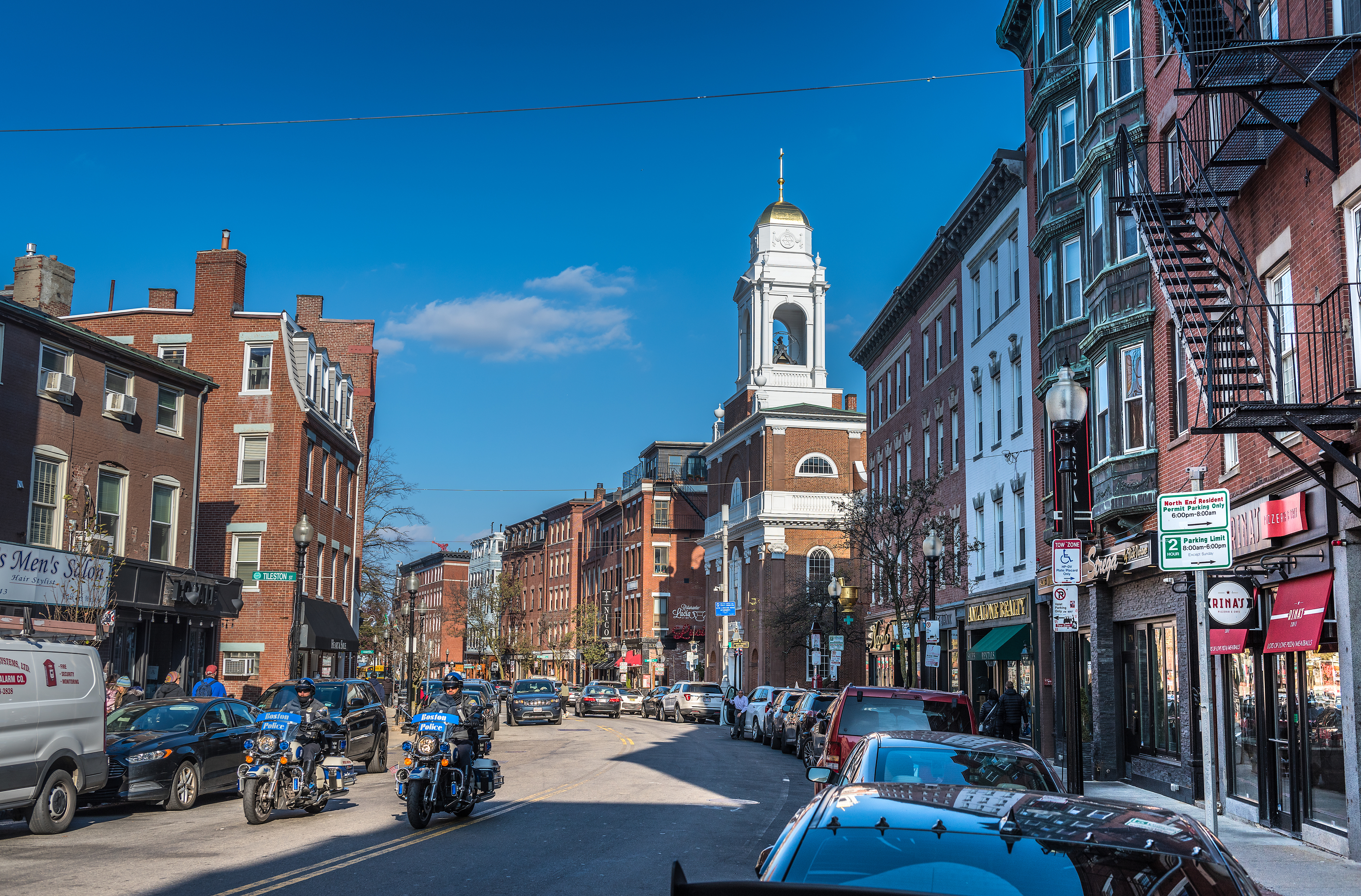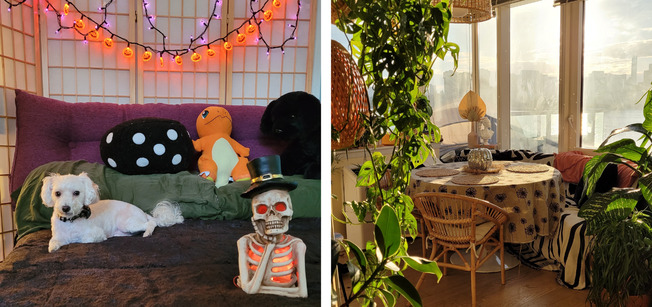
What I Learned Renting in Boston for a Decade

By Anni Irish
Jun 09, 2023
I rented my first Boston apartment when I was 18, and in the decade since, I’ve learned a lot about the unwritten rules of renting in this city. I’ve lived all over — from a studio apartment near Symphony Hall to a two-bedroom apartment with a rooftop garden in the North End. Here are the four most important things I learned while navigating the Boston rental market over the years.
Knowing your rights as a tenant will come in handy in every apartment.
Whether I’ve been requesting basic repairs or dealing with a pest issue, I’ve benefitted significantly from knowing what mine and my landlord’s legal rights are. According to the Massachusetts State Sanitary Code, as a tenant you are “entitled to a safe and habitable living environment throughout [your] entire tenancy.” This means that your rental unit must have proper heat and hot water, cover pest control services, and offer general maintenance of the structure of the unit. While there is some level of interpretation required of this rule, the unit must generally be in livable condition. In some cases, protections may even extend to removing mold or bed bugs if the issue arises.
There is also a heating season in Boston, which means your landlord or property owner is legally required to heat the building and keep it at a specific temperature for a period of time. Depending on your lease, the heat may even be included in the price of the rent. Boston's heating season is from September 15 to June 15. During that time, all the rooms in your apartment must be at least 68℉ (and no higher than 78ºF) between 7:00 AM to 11:00 PM, and at least 64℉ at all other hours. In Boston, property owners are also responsible for snow removal the removal of snow.
If your landlord isn’t meeting any of the above requirements, you should reach out to them immediately. Renters also have a right to communicate with their landlords or property managers. If there is an issue with your unit or building, you should be able to get a hold of your landlord, property manager, or building superintendent in a reasonable amount of time — especially in an emergency, like if your heat isn’t working during the winter. If you are running into constant issues with your apartment, start documenting them. A good rule for tenants is to document and date any communication about the state of your rental unit or issues you are experiencing with your apartment, building, or building management. You can learn more about your tenant’s rights through the Massachusetts Fair Housing Law website.
Different neighborhoods can have completely different lifestyles.
The neighborhood where you live matters just as much as the unit you rent.
I called Jamaica Plain home for close to six years, and it is still one of my favorite neighborhoods of all time — even though I had one of the worst rental experiences here. When I rented an apartment in JP, I didn’t realize that there were some quirks that can accompany the houses and double- and triple-decker homes. I had been used to living in larger apartment buildings before then.
While I loved the area where I lived, I didn’t do enough research on the building I moved into and there were a lot of issues that came with it. Not only did I have a difficult neighbor who I didn’t get along with, I also lived through plenty of building headaches and the landlord’s sloth-like pace in handling issues. In larger apartment buildings, there are usually more standard processes (like online portals) for submitting things like maintenance requests, while an independent landlord may require more direct communication like a phone call or a letter.
If possible, when scouting a neighborhood to move to, try to talk to some residents about living there. If you are moving into a smaller building with only one or two other tenants, ask your potential property manager or landlord about them (Do they keep odd hours? Do the building’s tenants share responsibilities like taking out the trash? Do they share laundry facilities?) or even ask for an introduction. In a smaller building, you’ll be more likely to interact with your neighbors, so you should make sure it’s a living situation that will work for you.
Tourist season is real — and it can really affect your routine.
With winding cobblestone streets dotted with countless Italian bakeries and restaurants, the North End provided me with some of the best food and views of the city I ever had over the two years I lived there. But this area came with its own set of challenges.
When I jumped at the chance to move to this unique neighborhood, I didn’t realize how difficult navigating around tourists would be. In the spring and summer months, the amount of people in the neighborhood almost doubles. Running basic errands and grocery shopping in the warmer months means walking through large crowds lined up at Mike’s Pastry. Plus, going out to eat at my favorite local restaurants meant competing with tourists who got reservations in advance or spent an hour waiting at the door.
Boston is a city of college students; in some neighborhoods, this is much more noticeable.
Because of its sophisticated look and proximity to downtown, I thought that Symphony Hall would be an ideal location for me. What I didn’t know going into my stay there was that the area was also most college students, due to nearby universities like Northeastern and Berklee College of Music. As I was no longer an undergrad, living around a large population of them got old quickly for me.
Even though college students are all over the Greater Boston area, Symphony Hall was one area that housed a ton of them. Buildings that look like standard apartment complexes from the outside sometimes even doubled as college dorms! I found myself living in one such building as a graduate student and came to regret it. The building’s property management company leased units to adult tenants, but was also renting units to a local university. This meant that a steady stream of undergrads was constantly coming in and out of the building, and I had to endure the noise from late-night parties. Had I known this prior to moving in, I would have not signed the lease!
Every neighborhood and every apartment will come with its own surprises and challenges, but doing your research while apartment hunting and finding an area that suits your needs and budget will pay off.
Interested in moving to Boston? Search our site for the latest Boston listings, complete with our price analysis and location insights. Then, work with our expert advisors to get personalized guidance, tour the places you like, and submit your application.
Top cities
Atlanta Apartments
1,999 apartments starting at $600/month
Austin Apartments
4,949 apartments starting at $600/month
Baltimore Apartments
1,472 apartments starting at $500/month
Boston Apartments
3,499 apartments starting at $940/month
Charlotte Apartments
2,903 apartments starting at $450/month
Chicago Apartments
4,012 apartments starting at $450/month
Dallas Apartments
5,609 apartments starting at $604/month
Fort Worth Apartments
2,193 apartments starting at $600/month
Houston Apartments
4,504 apartments starting at $590/month
Las Vegas Apartments
1,081 apartments starting at $704/month
Los Angeles Apartments
11,535 apartments starting at $625/month
Miami Apartments
544 apartments starting at $1,000/month
Milwaukee Apartments
928 apartments starting at $465/month
New York Apartments
4,118 apartments starting at $488/month
Oakland Apartments
608 apartments starting at $885/month
Orlando Apartments
842 apartments starting at $825/month
Philadelphia Apartments
3,657 apartments starting at $550/month
Phoenix Apartments
4,153 apartments starting at $599/month
Pittsburgh Apartments
1,223 apartments starting at $600/month
Portland Apartments
2,519 apartments starting at $599/month
Raleigh Apartments
1,367 apartments starting at $750/month
San Antonio Apartments
3,925 apartments starting at $525/month
San Diego Apartments
2,960 apartments starting at $650/month
San Francisco Apartments
436 apartments starting at $675/month
San Jose Apartments
405 apartments starting at $1,300/month
Seattle Apartments
3,623 apartments starting at $450/month
Tampa Apartments
1,078 apartments starting at $800/month
Washington DC Apartments
2,878 apartments starting at $745/month


